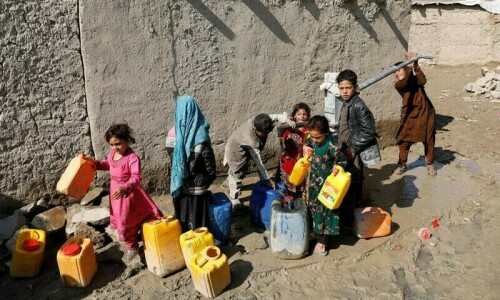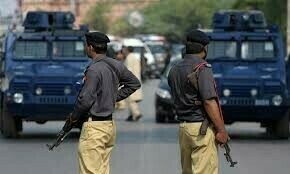
When the United Arab Emirates take on bitter Gulf rivals Qatar in the Asian Cup semi-finals on Tuesday, good luck spotting the Qatari fans.
Not only are Qataris largely barred from UAE due to the ongoing Gulf blockade, but the hosts have gone to great lengths to make sure no pro-Qatar supporters sneak in.
In a telling turn of events, the Abu Dhabi Sports Council has snapped up all remaining tickets to give away to "loyal UAE fans", it said in a tweet.
Long queues formed as supporters waited for their free tickets, but only people holding Emirati identification were eligible.
The move appears aimed at preventing a repeat of Qatar's last-16 game with Saudi Arabia, the UAE's staunch ally, when Omani fans turned up to cheer on the Maroons.
It also highlights seething tensions between Qatar and UAE, one of a group of countries enforcing a diplomatic and transport blockade of the 2022 World Cup hosts for allegedly supporting terrorism — a claim Doha denies.
The result is that Abu Dhabi's 42,000-capacity Mohamed Bin Zayed stadium will be not only a sell-out, but also nearly unanimously behind Alberto Zaccheroni's white-clad team.
'If we win, we will cry'
Losing to Qatar in a home semi-final would be embarrassing for UAE, and it could get even worse if Qatari allies Iran, who play Japan on Monday, also reach the final.
Seeing Iran or Qatar celebrating under their national flag in Abu Dhabi would be hard to stomach for the hosts, and would raise the thorny of question of whether to let senior officials from the two countries attend.
The regional rivalry has permeated the tournament, which is only available to watch in UAE via Qatar's subscription-only beIN Sports, which isn't available even in official, tournament-approved hotels.
Qatari fans will, of course, be watching from afar. Qataris need prior permission to visit UAE, and with transport links cut they also need to travel via another country, complicating the journey.
"It's not only me who wants to travel to the match, thousands of Qatari people want to watch the team," Qatar fan Abdulrahman, a 25-year-old IT engineer, told AFP in Doha.
"Of course, I won't go. If I go I will have too many problems, it's far too much trouble for us."
He added: "If we win we are going to cry. We want to show the UAE that you blockaded us, you gave us too many problems, but you will never stop us."
It's not all enmity, however. On social media, many fans from both sides were sharing clips and interviews from before the crisis blew up in mid-2017, when people spoke of a united Gulf.
"If Qatar wins we will be happy, and if the UAE wins we will also be happy," wrote Ahmed, who had a Saudi flag next to his Twitter handle.
"The most important thing is that the cup will be won by a team from the Gulf. We are one Gulf, one nation."













































